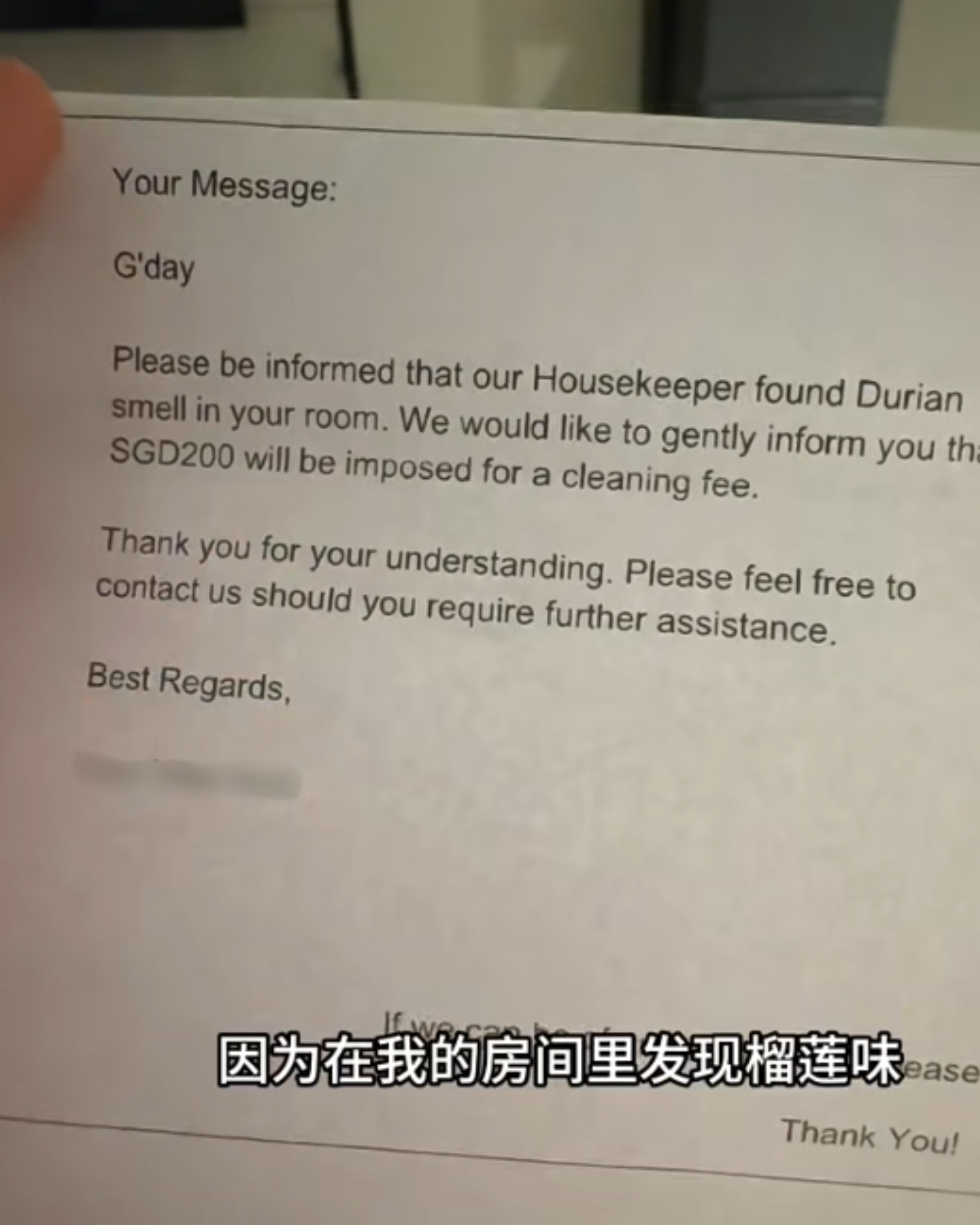- Joined
- Aug 20, 2022
- Messages
- 18,956
- Points
- 113
Chinese Tourist Fined SGD200 for Eating Durian Inside SG Hotel Room
She claimed she was unaware of the rules.Ying Ren TanMay 28, 2025
A Chinese tourist was hit with a (S$200) cleaning fee after she unknowingly ate durian inside her hotel room during a trip to Singapore.
The woman, who goes by the username “幽蓝桑” on Xiaohongshu, shared her experience in a video to warn others not to make the same mistake.
Receive letter informing her penalty the next day
She said she had been exploring the city with a friend when they came across a roadside durian stall. Since there was no place to sit and enjoy the fruit, they decided to pack it back to their hotel.The next day, after returning from a day out, she was shocked to find a letter from the hotel informing her that durian had been detected in her room—and that she would be charged S$200 for professional cleaning.While we were in the taxi, the smell started to leak out. My friend even commented that the durian was really strong, so I tightened the container, worried the driver might not like it. But he didn’t say anything,” she said.

Found out most hotels banned durian
She later searched online and realised many other tourists were also unaware that durians were banned in most hotels due to their strong smell.She called the hotel to apologise, explaining that she genuinely didn’t know. The staff informed her that some hotels charge up to S$500 for similar violations.

She also mentioned that the durian was sealed in a food container, wrapped in plastic wrap, and placed inside a bag—so hotel staff didn’t notice it when she entered.
To other durian lovers, she had one key takeaway:
No matter how good it smells, don’t bring durian back to your hotel. It’s not worth the fine!”

